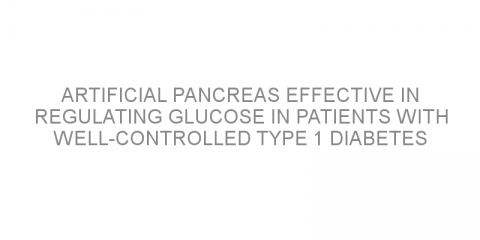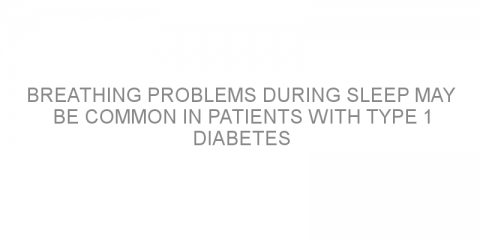In a nutshell This review summarized the treatment options available to type 2 diabetes patients with non-alcoholic fatty liver disease (NAFLD). This review considers current treatment options and possible future treatments. Some background Type 2 diabetes (T2D) can lead to multiple complications over time. NAFLD is increasing in patients...
Read MoreDiabetes mellitus Posts on Medivizor
Current guidelines for glucose-lowering medications in type 2 diabetes
In a nutshell These guidelines examined the evidence and presented recommendations for the treatment of type 2 diabetes with oral glucose-lowering drugs. It was concluded that metformin (Glucophage) was suitable for most patients, and that some may require an additional drug. Some background Type 2 diabetes (T2D) is a progressive...
Read MoreLow vitamin D and blood pressure in women with gestational diabetes
In a nutshell This study investigated the link between vitamin D deficiency and high blood pressure in women with gestational diabetes (GD). It found that low vitamin D was associated with high blood pressure mainly in white women, rather than women with darker skin tones. Some background Vitamin D can be taken in food, or made in the skin in...
Read MoreLow vitamin D associated with increased cardiovascular risk in patients with type 2 diabetes
In a nutshell This study examined the link between vitamin D deficiency and coronary heart disease events, like heart attacks, in patients with type 2 diabetes (T2D). It was found that vitamin D deficiency increased the risk of coronary heart disease (CHD) events in these patients. Some background CHD is a disease where a fatty substance...
Read MoreEffects of pramlintide in lifelong management of type 1 diabetes
In a nutshell This study examined the effects of pramlintide (Symlin) in type 1 diabetes (T1D), and whether the duration of the disease had any impact. It was found that pramlintide was effective in the control of T1D across a range of disease duration. Some background Amylin is produced by the pancreas and released with insulin. Like...
Read MoreImplantable continuous glucose sensor found to be accurate
In a nutshell This study investigated the safety and accuracy of a new implantable continuous glucose monitoring (CGM) sensor. It found that the device was accurate and safe. Some background CGM systems provide real-time information on glucose levels and reduce the need for fingerstick testing. In CGM systems glucose is measured by a sensor placed...
Read MoreArtificial pancreas effective in regulating glucose in patients with well-controlled type 1 diabetes
In a nutshell This study compared a new method of insulin delivery, a hybrid closed-loop system, with standard insulin pumps in patients with type 1 diabetes (T1D). It was found that the time spent at the desired glucose concentration was improved with the closed-loop system. Some background A traditional insulin pump is a small device that...
Read MoreBreathing problems during sleep may be common in patients with type 1 diabetes
In a nutshell This study examined the prevalence of obstructive sleep apnea (OSA) in patients with type 1 diabetes (T1D). It was concluded that patients with T1D were more likely to have OSA than the general population. Some background Obstructive sleep apnea (OSA) is a disorder where breathing either stops or is slowed during sleep. This can...
Read MoreVision impairment in diabetes: The effectiveness of anti-VEGF treatment for diabetic macular edema
In a nutshell This study examined treatment outcomes of anti-VEGF for diabetic macular edema. Researchers reported improved vision based on both physical examinations and patient-reported outcomes 12 months after treatment. Some background Chronic high blood glucose levels can result in damage to small blood vessels. This can lead to a number of...
Read MoreA history of anxiety and depression found to worsen glycemic control in type 2 diabetes
In a nutshell This study examined the effect of lifetime depression and anxiety on current psychological symptoms and diabetes behavior and control in patients with type 2 diabetes (T2D). Some background In T2D levels of glucose in the blood are elevated. Proper glycemic control (control of blood glucose levels) is essential to prevent long-term...
Read MoreType 1 diabetes and the risk of epilepsy
In a nutshell This study examined the risk of developing epilepsy in children with type 1 diabetes. The researchers concluded that type 1 diabetes was associated with an increased risk of epilepsy. Some background Type 1 diabetes is an autoimmune disorder where the body’s immune system attacks the pancreas. The pancreas produces insulin, the...
Read MoreComparing the benefits of different exercise programs for patients with prediabetes
In a nutshell This study examined the effect of exercise at various intensities in reducing glucose levels in patients with prediabetes. Researchers reported the greatest overall improvements for patients undergoing a diet, exercise, and weight loss program. Exercise alone at moderate intensity done a high amount of times per week was nearly as...
Read More










